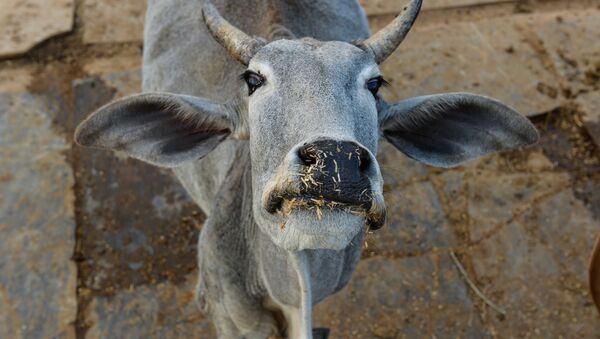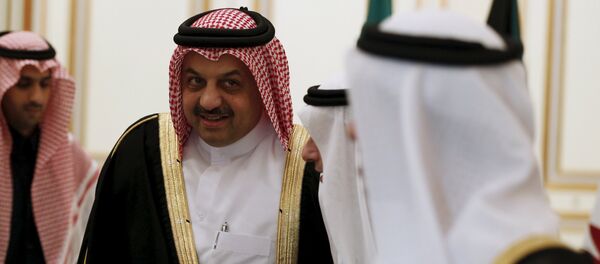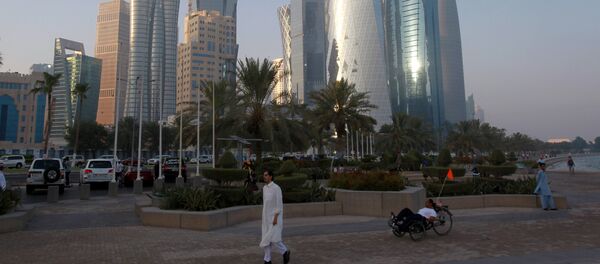The first bovines to be flown in were 165 Holstein cows from Budapest, which were settled on a farm 50 miles from the capital of city of Doha. The event received heavy coverage in the Qatari media, which presents the cows as a symbol of the country's defiance of the Saudi-led blockade.
"We brought in 165 Holsteins, all highly-bred Holsteins, especially for dairy," said John Dore, a senior manager at Baladna Livestock Production, in a statement about the acquisition. "There are 35 milking cows that are in milk at present and there are 130 that will calve in the next two to three weeks."
Qatar's only land border is with Saudi Arabia, and with the border closed and a de facto blockade on the tiny Gulf state, there is no way for food to enter.
Saudi Arabia, along with Bahrain, Egypt and the UAE, have cut ties with Qatar, citing that Doha is a state sponsor of terror, a charge the Qatari emir denies.
Being a desert, mostly barren save for rich reserves of oil and natural gas, Qatar is heavily reliant on imports to feed its people. Since the beginning of the crisis, Qatar has been importing food from countries outside the embargo, such as Iran, Morocco and Turkey.
At present, Qatar's herd of 5,000 cows only provides "between 10 and 15 percent" of Qatar's beef and milk needs, according to Dore. However, Doha hopes to quintuple the nation's cattle population to 25,0000.
It'll take a total of 60 flights to bring all 4,000 of the cows in, according to a statement from Moutaz al-Khayya, the chairman of the Qatari company that's importing the cows.
Qatar intends to decrease their dependency on food imports going forward, even after this current crisis comes to an end. Their first step is to become "self-sufficient in beef," according to Dore.
"Before, most of the milk in Qatar was imported from Saudi Arabia and the UAE," Dore added. "At the moment, the gap is being filled by Turkish imports, which are welcome for the present but the quality won't compare with local produce."
The animals seemed mostly unperturbed by their journey 2,300 south from Hungary. Ever-placid, they munched on grass with seemingly no awareness of their economic or geopolitical importance.
The Qatari have added that they can withstand a boycott "forever" if need be.





